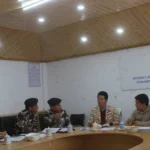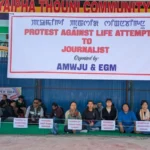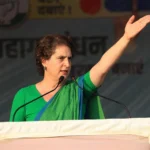Imran Khan, the ousted Prime Minister of Pakistan, has resumed his political activities by launching the flag hoisting campaign of his party, Pakistan Tehreek-e-Insaf (PTI). He called on his supporters to fully participate in the face of what he described as the “fascist” government’s oppressive tactics against the PTI.
This campaign marks the PTI’s first political activity since the violent riots that erupted on May 9th, following Khan’s arrest in a corruption case. Although Khan was later released on bail, he still faces over 140 cases ranging from terrorism and violence to blasphemy, corruption, and murder.
In a tweet, Khan expressed his determination, stating, “The more they have tried to suppress Pakistan’s biggest and only federal party, the more people of Pakistan stand with it.” He urged his supporters to demonstrate their unwavering commitment to the cause of “Haqeeqi Azadi” or real freedom by proudly displaying the PTI flag.
The resumption of political activities by Imran Khan and the PTI is a significant development in Pakistan’s political landscape. Despite facing numerous legal challenges and accusations, Khan remains a popular figure among a substantial segment of the population. His party’s flag hoisting campaign is seen as a rallying cry for his supporters and a display of defiance against the government’s alleged efforts to silence dissent.
The PTI has been known for its anti-corruption stance and promises of bringing about substantial reforms in Pakistan. Khan’s rise to power in 2018 marked a significant shift in the country’s political landscape, as he presented himself as a fresh alternative to the traditional political elite. However, his tenure as Prime Minister faced criticism and challenges on various fronts, including the economy, governance, and human rights.
The violent riots that occurred following Khan’s arrest in May were a stark reminder of the deep divisions within Pakistani society. The government’s heavy-handed response to the protests further fueled tensions and raised concerns about the state of democracy and civil liberties in the country.
Khan’s release on bail did little to appease his critics, who argue that his alleged involvement in multiple criminal cases undermines his credibility as a leader. However, his supporters view him as a victim of political persecution and continue to rally behind him, as evidenced by their participation in the PTI’s flag hoisting campaign.
The resumption of political activities by Khan and the PTI also signals a renewed effort to regain political momentum and consolidate support ahead of future elections. Despite the controversies surrounding Khan and his party, they still command a significant following, particularly among the youth and urban middle class.
It remains to be seen how the government will respond to the PTI’s renewed political activities. The accusations of oppression and fascism leveled by Khan against the government are likely to further intensify the political tensions in the country. The coming months will be crucial in determining the direction of Pakistan’s political landscape and the fate of Imran Khan and the PTI.









